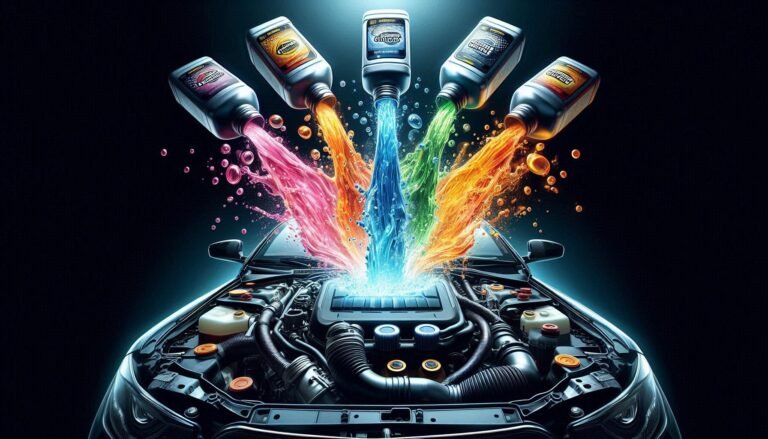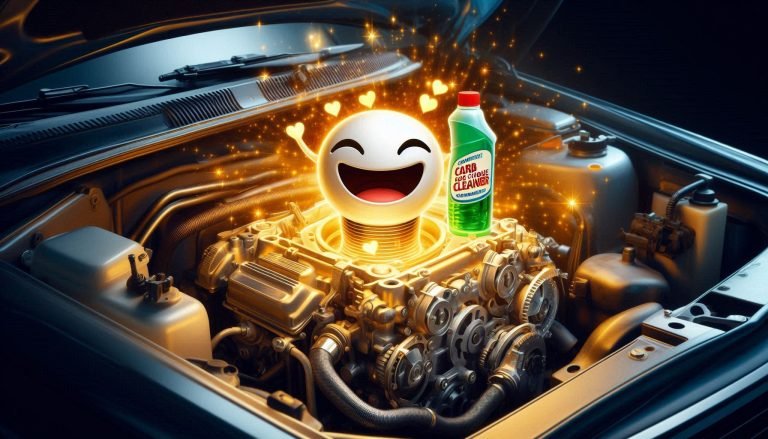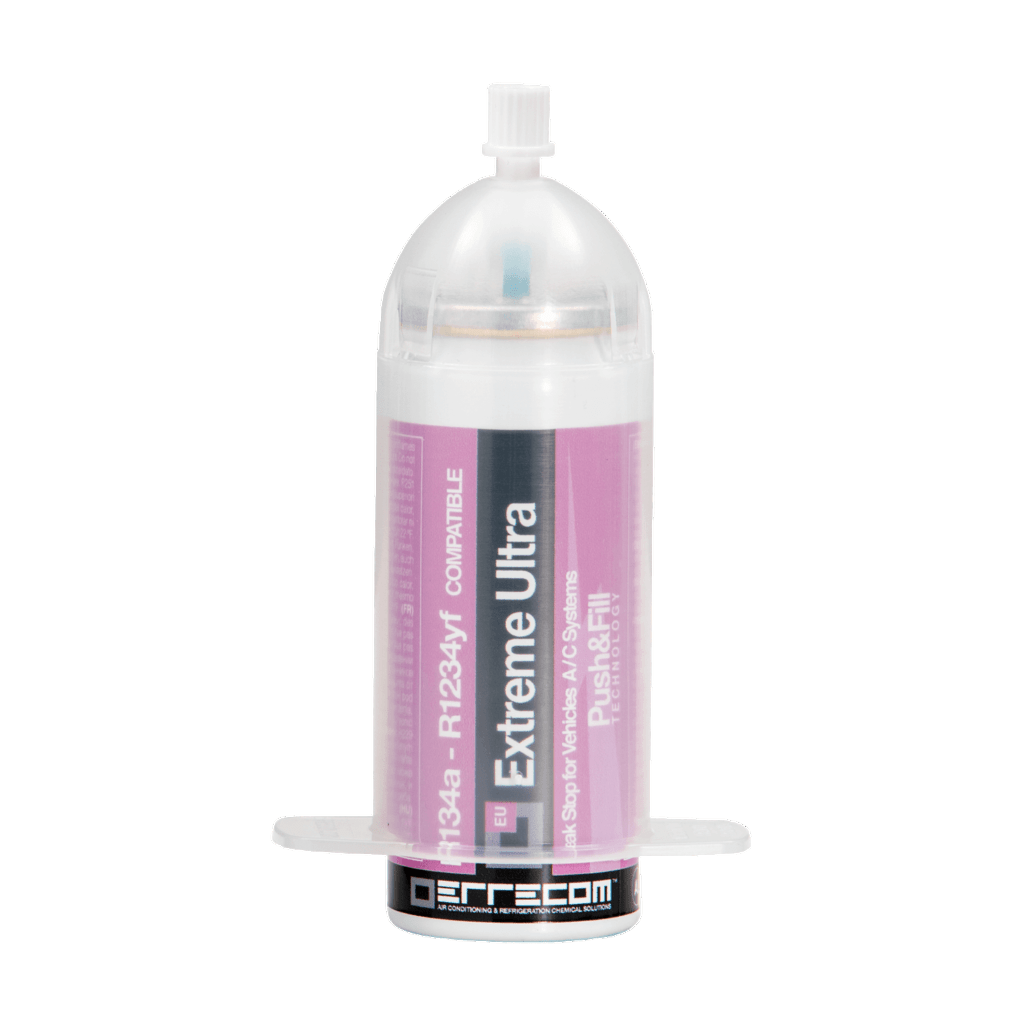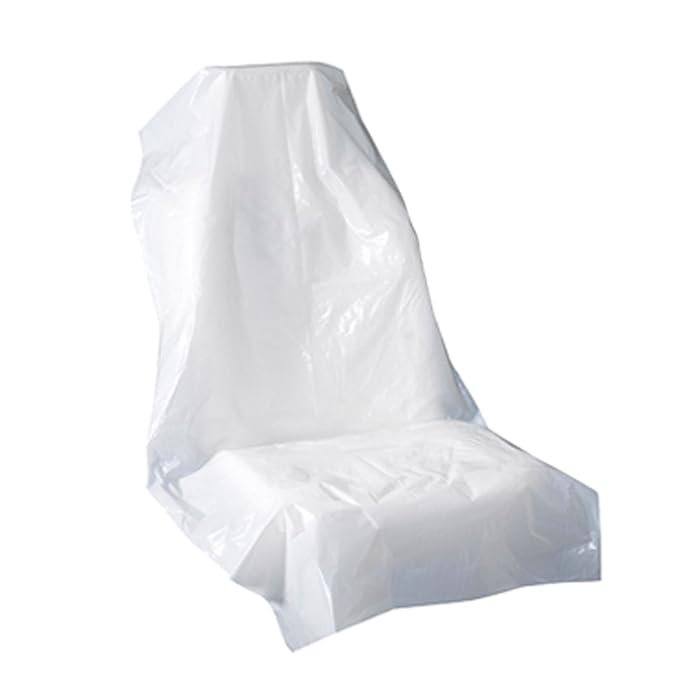Supercharge Your Vehicle’s Performance with Ultimate Engine Injection System Cleaner!

By Ali Hasan Omar | July 10, 2024
Introduction
Maintaining your vehicle’s engine is crucial for optimal performance, fuel efficiency, and longevity. One of the most effective ways to keep your engine running smoothly is by cleaning your fuel injectors. Here’s why engine injection system cleaners are essential and how they can benefit your vehicle.
What is an Engine Injection System Cleaner?
An engine injection system cleaner is a specially formulated chemical additive designed to clean your vehicle’s fuel injectors, intake valves, and combustion chambers. Over time, deposits from fuel and air can build up in these areas, leading to reduced engine performance, poor fuel economy, and increased emissions.
Using a fuel injector cleaner helps dissolve and remove these deposits, restoring engine efficiency and power. A clogged injector can cause a drop in power, poor fuel economy, and an overall unpleasant driving experience.
Benefits of Using Engine Injection System Cleaners
- Improved Fuel Efficiency: Clean injectors lead to more efficient fuel combustion, improving mileage and saving money at the pump.
- Enhanced Engine Performance: A clean engine performs better. Regular use of a cleaner can restore lost power and improve acceleration.
- Reduced Emissions: Cleaner injectors result in more complete combustion, reducing harmful emissions and making your vehicle more eco-friendly.
- Prevent Costly Repairs: Regular use of a cleaner can prevent deposit buildup, reducing the likelihood of expensive repairs, such as injector replacement.
- Smooth Idle and Startup: A clean fuel system helps eliminate rough idling and hard starts, making your vehicle more reliable.
Signs Your Fuel Injectors Need Cleaning
Recognizing early signs of fuel injector issues can save you from expensive repairs later. Key indicators include:
- Decreased Gas Mileage: If you notice your car consuming more fuel than usual, a clogged injector could be the culprit.
- Hesitation During Acceleration: A dirty injector may fail to deliver fuel fast enough, leading to sluggish acceleration.
- Rough Idling: Inconsistent fuel delivery due to dirty injectors can cause rough idling, as the engine isn’t receiving the proper fuel-air mixture.

Choosing the Best Fuel Injector Cleaner
Selecting the right cleaner is key to keeping your engine at its best. Here’s what to consider:
- Vehicle Compatibility: Ensure the cleaner is compatible with your vehicle’s make and model.
- Active Ingredients: Look for cleaners containing Polyetheramine (PEA) or Polyisobutene (PIB), known for their excellent cleaning properties.
- Cleaner Potency: Higher-quality cleaners, like FORCH Petrol Injection Additive, tend to provide more noticeable results, improving both performance and fuel efficiency.
How to Use Engine Injection System Cleaners: Step-By-Step
Using an engine injection system cleaner is simple:
- Read the Instructions: Follow the product’s label for correct usage.
- Empty Your Gas Tank: Add the cleaner when the gas tank is nearly empty to create a concentrated solution.
- Pour the Cleaner: Open the fuel cap and pour the recommended amount of cleaner into the tank. Use a funnel if needed.
- Fill the Gas Tank: Fill the tank with fuel to mix the cleaner thoroughly.
- Drive Until Empty: Drive until the fuel tank is empty to ensure the cleaner works through the system.
How Often Should You Clean Fuel Injectors?
The frequency of fuel injector cleaning depends on several factors:
- Driving Habits: City driving may require more frequent cleanings (every 3,000 miles or 5,000 Km) due to frequent stops and starts.
- Fuel Quality: Using lower-quality fuel may necessitate cleaning every 1,000–3,000 miles (1,600–5,000 Km).
- Vehicle’s Age: Newer vehicles might only need injector cleaning every 7,500–15,000 miles (12,000–24,000 Km), while older vehicles may benefit from more frequent maintenance.
Consult your owner’s manual or a mechanic to determine the best cleaning schedule for your vehicle.
Safety Measures and Precautions
When using a fuel injector cleaner, it’s crucial to follow these safety tips to avoid potential hazards:
- Handle Fuel Components Carefully: Keep fuel-carrying components away from heat, flames, and direct sunlight.
- Avoid Ingestion and Skin Contact: Wear gloves and avoid skin contact. Keep away from children and pets.
- Use a Funnel: Prevent spillage by using a funnel when pouring the cleaner into your tank.
- Dispose of Properly: Follow local disposal regulations for empty containers and leftover cleaner.
By following these safety measures and precautions, you can successfully and safely clean your fuel injectors to keep your vehicle running smoothly and efficiently.
Final Thoughts:
Regular engine maintenance, including using an engine injection system cleaner, can keep your vehicle running smoothly and efficiently. With better performance, improved fuel economy, and fewer emissions, you’ll avoid costly repairs and enjoy a better driving experience.
Drive Cleaner, Drive Better! 🚗💨
Pick up a bottle of engine injection system cleaner today and keep your vehicle running like new!
FAQs
Should fuel injector cleaner be added before or after refueling?
When is the best time to use fuel injector cleaner?
The ideal time to add fuel injector cleaner is when your fuel tank is almost empty, right before refueling. This ensures thorough mixing of the cleaner with the fuel, leading to optimal performance.
How long does it take for fuel injector cleaner to take effect?
The time required for fuel injector cleaner to work can vary depending on the specific product. Generally, it starts working as soon as you begin driving. For the most effective cleaning, it is advisable to use the entire tank treated with the cleaner.
Should the entire bottle of fuel injector cleaner be used at once?
Yes, most manufacturers recommend using the entire bottle of fuel injector cleaner in one treatment, particularly when the fuel tank is almost empty. However, always consult the product instructions to confirm the appropriate dosage.
Is fuel injector cleaner added directly to the gas tank?
Yes, fuel injector cleaner is designed to be poured directly into the gas tank. It mixes with the fuel and cleans the injectors as the fuel circulates through the engine.
How often should I use fuel injector cleaner?
It is generally recommended to use fuel injector cleaner every 3,000 to 5,000 miles (5,000 to 8,000 Km) or with every oil change. However, frequency may vary depending on driving habits, fuel quality, and manufacturer recommendations.
Can fuel injector cleaner improve fuel efficiency?
Yes, a clean fuel injection system can help restore fuel efficiency by ensuring proper fuel atomization and combustion. Regular use of a fuel injector cleaner can remove deposits that may cause inefficient fuel use.
Can fuel injector cleaner fix a rough idle or misfire?
In some cases, a dirty or clogged fuel injector can cause a rough idle or engine misfire. Using a fuel injector cleaner can help address these issues by removing the buildup of deposits that may be affecting fuel flow.
Are there any risks of using fuel injector cleaner too frequently?
While occasional use is beneficial, overuse of fuel injector cleaner can potentially harm certain engine components or cause over-cleaning. Always follow the manufacturer’s guidelines on frequency of use.
Is there a difference between fuel injector cleaner and fuel system cleaner?
Yes, fuel injector cleaner focuses specifically on cleaning the injectors, whereas fuel system cleaner is a broader solution designed to clean multiple parts of the fuel system, including the injectors, fuel lines, and combustion chambers.
Can I use fuel injector cleaner in all types of engines?
Most fuel injector cleaners are compatible with both gasoline and diesel engines. However, it is important to check the product label to ensure it is suitable for your specific engine type.
What are the signs that my fuel injectors need cleaning?
Common signs include reduced fuel efficiency, rough idle, engine misfires, sluggish acceleration, and difficulty starting the vehicle. If you notice any of these issues, it may be time to clean your fuel injectors.
Will using fuel injector cleaner damage my catalytic converter?
Most fuel injector cleaners are safe for catalytic converters when used as directed. However, overuse or using a product not suited for your vehicle could lead to potential damage. Always follow product instructions carefully.
Can fuel injector cleaner replace professional fuel system cleaning?
While fuel injector cleaners can help maintain the cleanliness of the system, they may not be a substitute for professional cleaning if there is significant buildup. In some cases, a mechanic may need to perform a deep cleaning or injector service.
Can fuel additives other than injector cleaner be used for engine maintenance?
Yes, in addition to fuel injector cleaners, there are other additives such as octane boosters, fuel stabilizers, and detergents designed to improve overall engine performance and prevent buildup. However, ensure compatibility with your vehicle before use.







